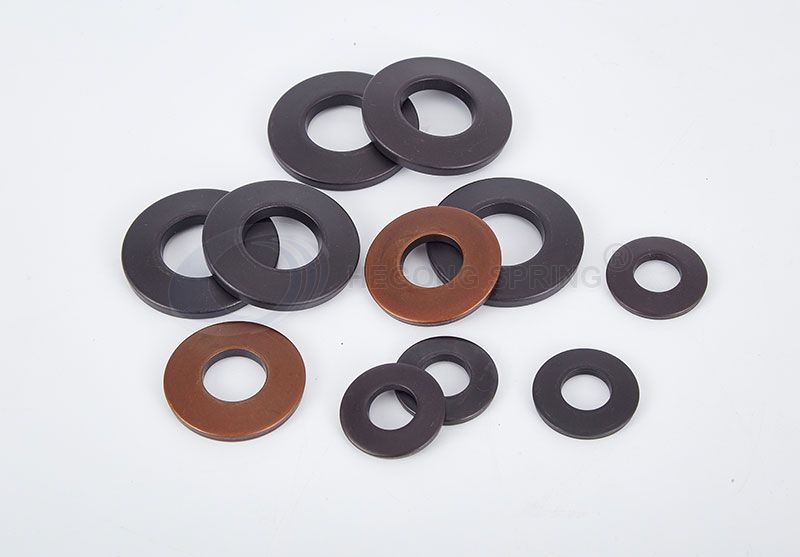Belleville Washers vs. Disc Springs: A Comparative Analysis
In the realm of mechanical engineering and industrial applications, the choice between Belleville washers and disc springs holds paramount significance. These small yet critical components play a pivotal role in various systems, influencing the performance and durability of machinery. In this comprehensive analysis, we delve into the intricacies of Belleville washers and disc springs, providing a thorough comparison to aid in making informed decisions for engineering applications.

Belleville washer also known as conical spring washers, are curved discs that exert a spring force when compressed. Typically made from materials like steel or alloys, these washers find applications in scenarios where space is limited, and high spring force is required. Their conical shape allows for efficient energy storage, making them ideal for applications requiring a compact yet powerful spring solution.
Key Features of Belleville Washers
Shape and Structure: The conical design of Belleville washers allows for a high load capacity within a limited space, making them versatile in various engineering setups.
Material Varieties: Available in a range of materials, including stainless steel, carbon steel, and alloys, catering to different environmental and load requirements.
Load-Deflection Characteristics: The relationship between load and deflection is crucial, and Belleville washers exhibit predictable and consistent characteristics in this regard.
Examining Disc Springs
On the other side of the spectrum, we have disc springs, also known as Belleville springs, which share similarities with their washer counterparts but possess distinct characteristics that set them apart.
Unique Attributes of Disc Springs
Multidirectional Load Handling: Disc springs excel in handling multidirectional loads, providing a level of flexibility not always achievable with traditional Belleville washers.
Stackable Configurations: Disc springs are often used in stacked configurations, allowing engineers to adjust the load and deflection characteristics based on specific requirements.
Material Choices: Similar to Belleville washers, disc springs come in various materials, but their stackability enhances the adaptability to different load scenarios.
Comparative Analysis
Load Distribution and Deflection
In the Belleville washers vs. disc springs debate, the load distribution and deflection characteristics are pivotal considerations. Belleville washers, with their conical shape, provide a concentrated load distribution, suitable for applications with limited space. On the contrary, disc springs, due to their stackable nature, offer a more uniform load distribution, making them suitable for scenarios with multidirectional forces.
Space Efficiency and Stackability
Belleville wave washer being single units, are inherently space-efficient. However, disc springs, with their stackable configurations, provide a unique advantage. Engineers can tailor the load and deflection characteristics precisely by adjusting the number and arrangement of disc springs in the stack, offering unparalleled flexibility.
Environmental Considerations
Both Belleville washers and disc springs come in a variety of materials, allowing engineers to choose based on environmental factors such as corrosion resistance, temperature tolerance, and overall durability. The versatility in material selection makes both components suitable for diverse industrial applications.
Conclusion
In conclusion, the choice between Belleville washers and disc springs depends on the specific requirements of the application at hand. Belleville washers excel in space efficiency and high load capacity within a confined space, while disc springs offer versatility in load distribution through stackability. Ultimately, the decision should be guided by the unique demands of the engineering system.
- Previous: None
- Next: None

